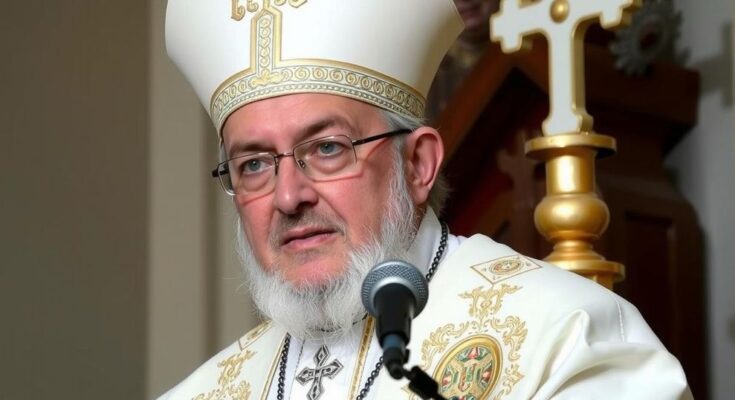Maronite Patriarch Bechara Boutros Al-Rahi criticized Lebanese politicians for their lack of trust and their expectations for foreign involvement in presidential elections. He emphasized the urgency of restoring political unity and trust among leaders as Lebanon approaches the presidential vote set for January 9, following a lengthy power vacuum and calls for internal reforms.
During a recent Sunday mass, Maronite Patriarch Bechara Boutros Al-Rahi expressed his discontent with the prevailing lack of confidence among Lebanese politicians, as well as their faith in state institutions. He criticized certain political leaders for their expectation that foreign figures should be chosen for the presidential role, deeming this approach a “big shame.” Al-Rahi underscored the significance of electoral processes, especially after enduring over two years of a political vacuum without a president. He conveyed appreciation for the support from allied nations advocating for the elections, which are scheduled for January 9, but expressed concerns that some parties are still contemplating a delay in this critical event.
Lebanon is currently experiencing its fourth power vacuum since gaining independence, which follows the conclusion of Michel Aoun’s presidential term on October 31, 2022. The absence of a functioning president has led to increased political instability and dissatisfaction among the populace. Maronite Patriarch Al-Rahi emphasized the necessity of appointing a president that can unify the country and restore faith within both the political sphere and among citizens. Previous conferences held in Paris, Rome, and Brussels aimed to enact reforms crucial for Lebanon’s governance failed to yield tangible outcomes, leaving the situation precarious.
Maronite Patriarch Bechara Boutros Al-Rahi has made a clarion call for restoration of trust and unity among Lebanese politicians as the presidential election approaches. His remarks highlight the urgency for electing a representative leader capable of bridging divides and forging institutional reforms. As Lebanon stands on the brink of a critical electoral decision on January 9, the challenges of political instability and foreign influence remain pivotal in shaping the nation’s future.
Original Source: www.plenglish.com




